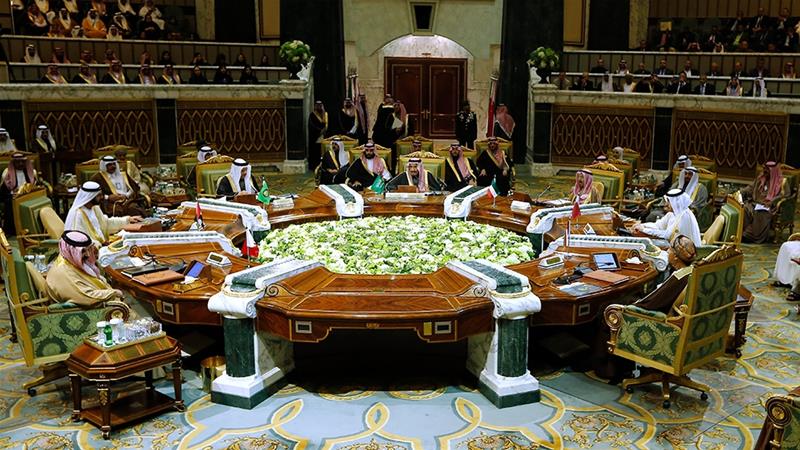Alwaght- Saudi monarch urged members of Persian Gulf Cooperation Council (GCC) to “confront” Iran, accusing the Islamic Republic of taking “aggressive actions” that endanger peace in the region.
“Our region today is passing through circumstances and challenges that require concerted efforts to confront them as the Iranian regime continues its aggressive actions that threaten security and stability,” King Salman bin Abdulaziz Al Saud said during the 40th GCC summit in Riyadh.
Echoing Saudi Arabia’s allies Israeli regime and the US, King Salman accused Iran of “deception” over its nuclear program, urging the world community to address the Islamic Republic’s nuclear activities as well as it conventional missile program.
Riyadh and Tel Aviv are among the few staunch critics of a UN-endorsed nuclear deal signed in 2015 between Tehran and the five permanent members of the UN Security Council.
Amid an intense lobbying campaign by the pair, the US abandoned the deal in May 2018 in defiance of UN Security Council 2231 and many reports by the world body’s nuclear watchdog confirming the peaceful nature of Iran’s nuclear work and Tehran’s full compliance with that deal.
Backed by its vassal states in the region, the US has since been attempting to militarize the Middle East’s key waterways under the pretext of confronting what it calls Iranian “threats” to regional peace.
Washington and its allies have blamed Tehran for a number of suspicious attacks on oil tankers in regional waters, with the US launching a push to create an international coalition of allies under the guise of protecting the shipping lines of the Persian Gulf.
Iran rejects the claims and says those assaults were false-flag operations meant to frame the Islamic Republic.
Iran has repeatedly said it is ready to settle its differences with Saudi Arabia through dialog. It has also drawn up an initiative dubbed — Hormuz Peace Endeavor (HOPE) — aimed at boosting collective neighborly efforts to safeguard the region free from foreign interference.
Not all of the GCC countries, however, have adopted Riyadh’s aggressive stance towards Tehran.
Rulers of Oman, UAE, Qatar absent from anti-Iran forum
This year’s summit of the GCC — comprised of Bahrain, Kuwait, Oman, Qatar, Saudi Arabia, and the UAE besides Saudi Arabia — was originally scheduled to be held in the UAE. It was, however, relocated to Saudi Arabia without any announced reason.
Tuesday’s summit was held in the absence of half of the GCC’s top leaders.
Oman’s Sultan Sayyid Qaboos bin Said Al Said did not take part in the summit, citing a treatment trip conflicting with the summit. He was represented by Oman’s deputy prime minister Sayed Fahd bin Mahmud al-Said instead.
The UAE’s Sheikh Khalifa bin Zayed Al Nahyan also did not join the meeting. He was replaced by Sheikh Mohammed bin Rashid Al Maktoum, vice president of the UAE and ruler of Dubai.
Earlier on Tuesday, Qatar’s Emir Sheikh Tamim bin Hamad Al-Thani also turned down the Saudi monarch’s invitation for the event. The Qatari leader was instead represented by Prime Minister Abdullah bin Nasser bin Khalifa Al Thani.
Relations between Riyadh and Doha have been mired by a 30-month diplomatic dispute.
Saudi Arabia — joined by Egypt, Bahrain, and the United Arab Emirates — imposed a land, naval and air blockade on import-dependent Qatar in June 2017, acceding Doha of supporting terrorism.
The Saudi-led bloc presented Qatar with a list of demands to meet in exchange for normalization, including severing ties with Iran and closing a Turkish military base. Doha, however, has refused to comply with the demands and has stressed that it will not abandon its independent foreign policy.
No progress on rift with Qatar
Despite much speculation regarding a thaw in Saudi Arabia’s strained ties with Qatar, Tuesday’s summit kept mum on the diplomatic standoff with Doha and came to an end with no progress on the issue.
This is while Qatar had said last week that attempts to diffuse tensions between the two countries had “moved from stalemate to progress.”



























